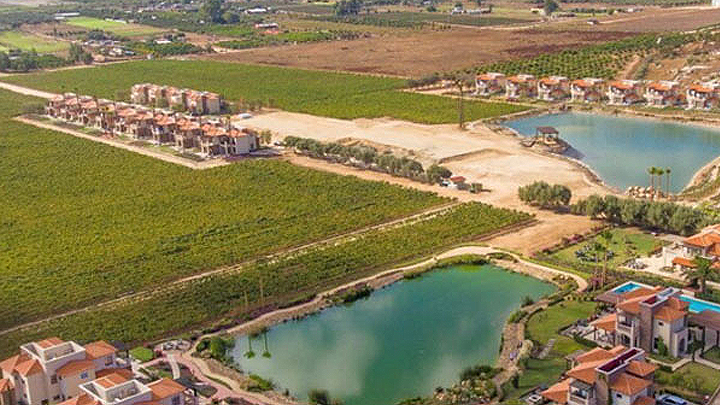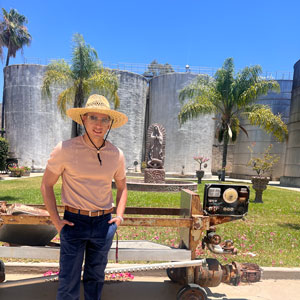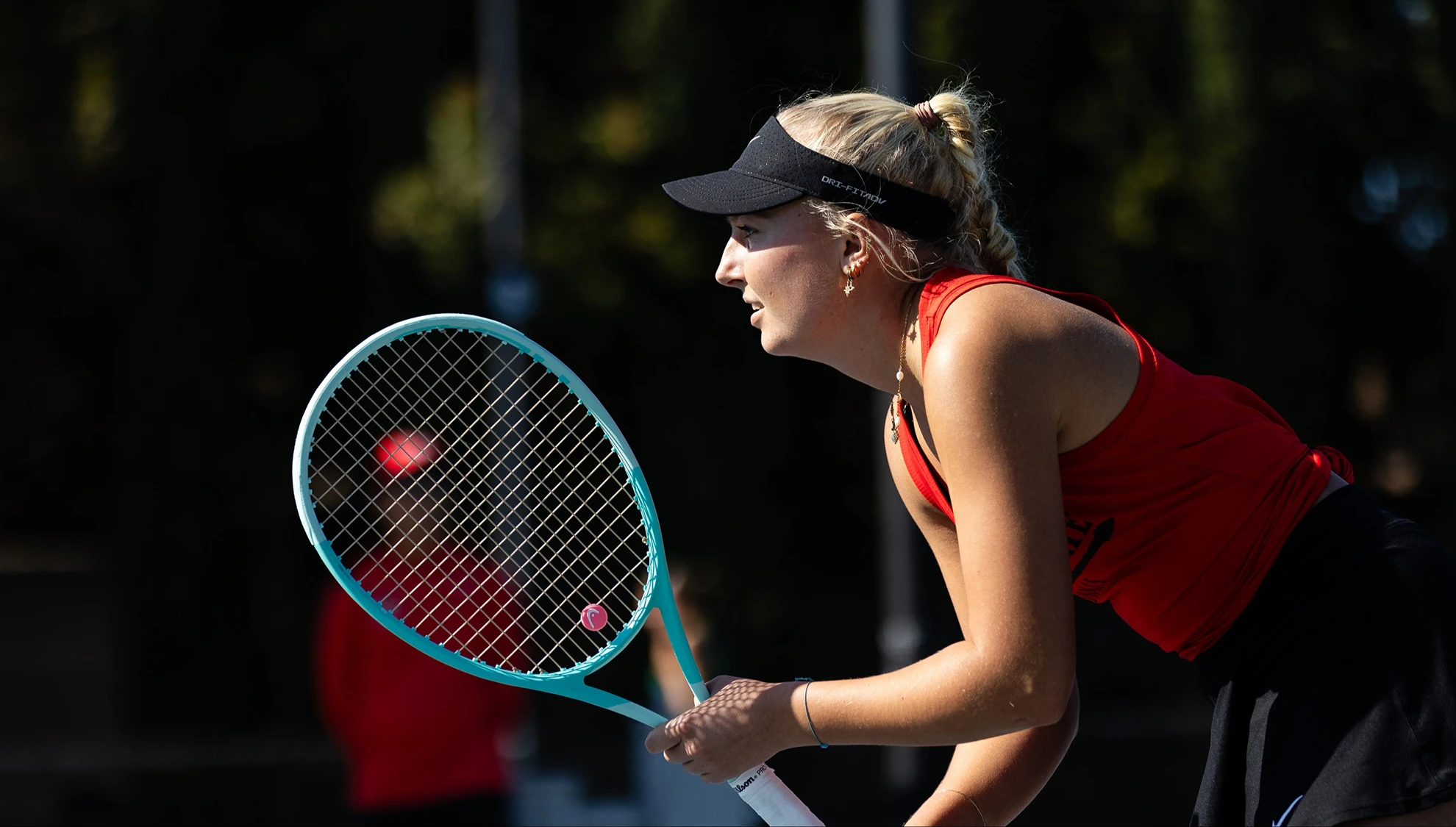Student research examines water scarcity's impact among Baja California’s wine producers
Study indicates that the Valle de Guadalupe region of Mexico has the potential to become a model for resilience in the face of climate change challenges.

As a participant in the San Diego State University Undergraduate Research Program, Fowler College of Business student Cesar Lopez embarked on a research project that examined how climate change impacts the northern Baja California winemaking industry.
With guidance from his faculty advisor, Ami Doshi, Lopez examined the water access and quality challenges faced by wine grape growers and winemakers in Valle de Guadalupe. This region produces the vast majority of Mexico’s wine and generates approximately $180 million USD in tourist-related revenue.
In spring 2024, Lopez — then, an SDSU management senior — researched how wine producers adapt to climate change, focusing on strategies to mitigate regional water scarcity.
“The proper management of water is critical for global well-being and equity, and reliable access to this shared resource is essential to sustainable development,” said Doshi, an SDSU management lecturer. “Cesar’s objective was to investigate water governance norms among Valle de Guadalupe’s winemaking communities, in the dual context of scarce water supplies in the region and Mexico’s unique political and regulatory landscape.”
 Open the image full screen.
Open the image full screen.
After doing an in-depth review of existing information detailing climate change effects on wine producers, Lopez, now an SDSU MBA student, found that most of the existing research focused on areas other than Mexico.
While it presented him with the opportunity to add significantly to this specific knowledge base, he also found that most of the winemakers in the Valle de Guadalupe did not seem to recognize the finite nature of water resources.
“Even though nearly two-thirds of municipalities are facing water shortages, many winemakers seemed unaware that their current practices would eventually undermine their own interests,” he said.
The second phase of his SURP project was a case study of a select winemaker in the Valle, and their attempts to navigate political issues, water governance, and community involvement while also managing climate change-related challenges.
His project findings support an ongoing effort involving Doshi and other faculty in the “SDSU Water Across Borders” research collaborative. It is the researchers’ hope that Lopez’ study will lead to shared knowledge, resources and mutual support in the face of climate change challenges.



